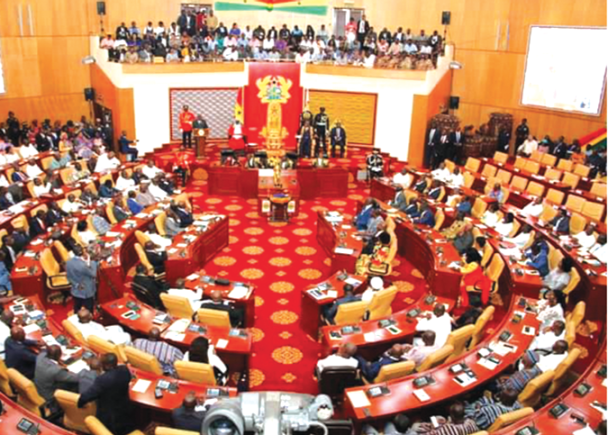
Anti-LGBT Bill and elections
On February 28, 2024, Parliament unanimously passed the Human Sexual Rights and Family Values Bill 2024, which Human Rights Watch renames the ‘dangerous anti-lesbian, gay, bisexual, and transgender (LGBT) bill’.
The bill has not been signed into law by President Akufo-Addo and indications are that it won’t be any time soon.
Numerous individuals and institutional representatives have made their views on the bill known, via both traditional and social media. Some are strongly in favour of the bill while others are fervently against it. Who is supportive of the bill and who is not, and why do they hold their positions?
Aims of the bill
The main aim of the bill is further to criminalise consensual sexual relations between two homosexual adults. Defining such practices, the bill links them to similar provisions in the Criminal and Other Offences Act of Ghana (1960). Most Christian and Muslim religious organisations want the bill passed as soon as possible. Most civil society organisations who have made their views known do not want the bill into law signed by the president.
Advertisement
Despite frequent references to the bill in both traditional and social media, it appears that many, perhaps most, Ghanaians, are not fully aware of the wide-ranging social, political, cultural and criminal implications if the bill becomes law.
The ostensible aim of the bill is to identify ‘proper’ human sexual rights and family values and enforce them in Ghana. Critics contend that the bill contravenes various rights and freedoms, not only of LGBT people but of heterosexuals too.
For the bill
Most Christian and Muslim religious organisations who have expressed a view believe that LGBT individuals are an abomination who must be prevented by the full weight of the law from practising and perpetuating their sexual activities. Homosexual sex is unequivocally condemned as it is believed to be ungodly. Relevant passages from the Bible and the Qur’an are cited as evidence. In addition, LGBT activities are believed to threaten family life – as a ‘true’ marriage, the bill asserts, can only be the result of a union between a man and a woman. When two men or two women form such a union, the result cannot be a child or children by natural means. For devout Christians and Muslims, having a child is the theological justification for marriage.
An extreme version of the ‘family values’ argues that LGBT partnerships – which cannot biologically produce offspring – are a Western plot to depopulate Ghana, and Africa more widely. Wealthy Western pro-LGBT groups are, it is claimed, paying activists to encourage LGBT activities both in society generally and among children in particular as a way of reducing Africa’s population. No evidence is produced for this claim.
Some prominent proponents of the bill claim that those publicly opposing it are paid, and this is what leads them to champion LGBT rights. That LGBT rights could be protected as a matter of principle is not taken seriously by such people. For them, there can only be two reasons why anyone would seek to protect LGBT rights: first, those advocating LGBT rights are themselves homosexual, and thus opposition to the bill is a matter of self-protection; second, proponents of LGBT rights are being paid by wealthy, Western organisations to champion LGBT rights in Ghana. Individuals championing the rights of homosexuals in Ghana are insulted and denigrated by the bill’s chief cheerleaders: Moses Foh-Amoaning, Executive Secretary, the National Coalition for Proper Human Sexual Rights and Family Values, and Sam George, MP for Ningo-Prampram Constituency. Both have publicly insulted key figures in the LGBT rights campaign with unsupported charges of foreign payments and being homosexual.
Against the bill
Organisations and individuals campaigning against the bill see things differently. First, they claim that the bill is unconstitutional on two grounds. On the one hand, it violates Article 17 of Ghana’s constitution, which establishes that every individual is equal before the law. On the other hand, a private member’s bill such as this one must not be a burden on public funds, and this one would be.
Second, the bill would perpetuate and deepen discrimination in Ghana, paving the way for vigilantes to terrorise LGBT people. Third, the bill criminalises and denies certain acts, including oral sex, a practice also engaged in by many heterosexual people.
Fourth, the bill prohibits LGBT people from marrying or from adopting or fostering children, and from organising into pro-LGBT associations. Fifth, teachers and educators face harsh penalties for discussing LGBT issues in the classroom, undermining the right to academic freedom and the right to education. Sixth, anybody who ‘produces, procures, or distributes material deemed to be promoting LGBT activities faces 6 to 10 years in prison. If implemented, this would lead to the abuse of press freedom, including the right to freedom of expression, information and education.
Finally, teachers, lecturers, media personnel and civil society activists, people who share content over social media platforms, or broadcast content on LGBTIQ+ are also going to be held criminally responsible.
In the second part of this article, I will outline what I see as the political and electoral implications of the bill in 2024, an election year.
The writer is Emeritus Professor of Politics at London Metropolitan University
